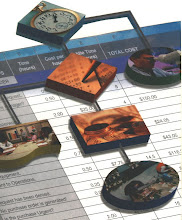The Performance Appraisal Interview
- Seek the employee's opinion of his/her overall performance since the last appraisal.
- Give recognition for accomplishments since the last appraisal.
- Specify one or two areas where performance might be improved, then ask for confirmation and suggestions.
- Summarize overall performance to put things in perspective.
- End on an encouraging note.
The contents of a performance review should never be a surprise to the employee at the time the review is given. The performance review is merely the formal documentation of the prior period's performance and justification for any salary adjustments that might be taking place, or not taking place. If you have multiple employees, reviews should address similar categories of concern for similar positions.
Any positive performances during the period should have been acknowledged at the time they occurred, with a note or letter of commendation placed in the employee's file at that time. Any negative issues should also have been acknowledged at the time they occurred, with appropriate levels of disciplinary action (coaching, retraining, written warning, performance improvement plan, etc.) documented at the time they occurred, and copies placed in the employee's file. Written warnings and PIPs should have been signed by the employee at the time they were given.
Goals for the next period should also be included in the review and in harmony with the direction of the company. They should be Specific, Measurable, Attainable, Realistic and Timely. These are known as SMART goals.
When it's time to write the performance review, you'll have the employee's file to refer to for justification of the comments you are entering on the review. If you've done your job throughout the period, the review should be an easy one to write. But above all, when it is given, it should not be a surprise to the associate. Be firm, be fair, and be consistent. You might also want to have another manager review it for objectivity in the event of a negative review.
